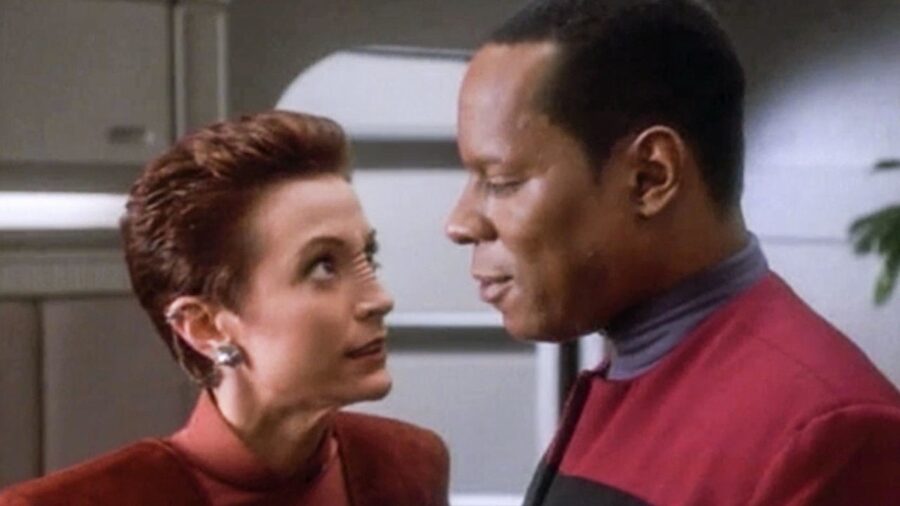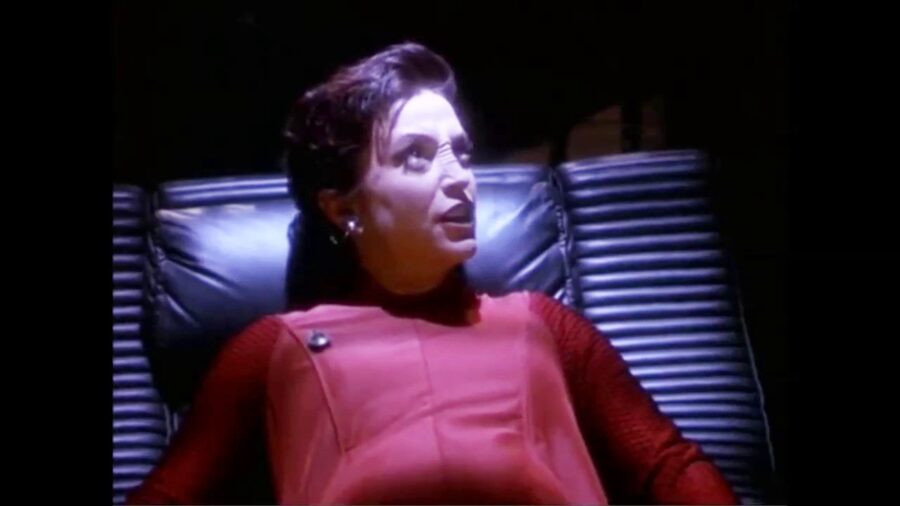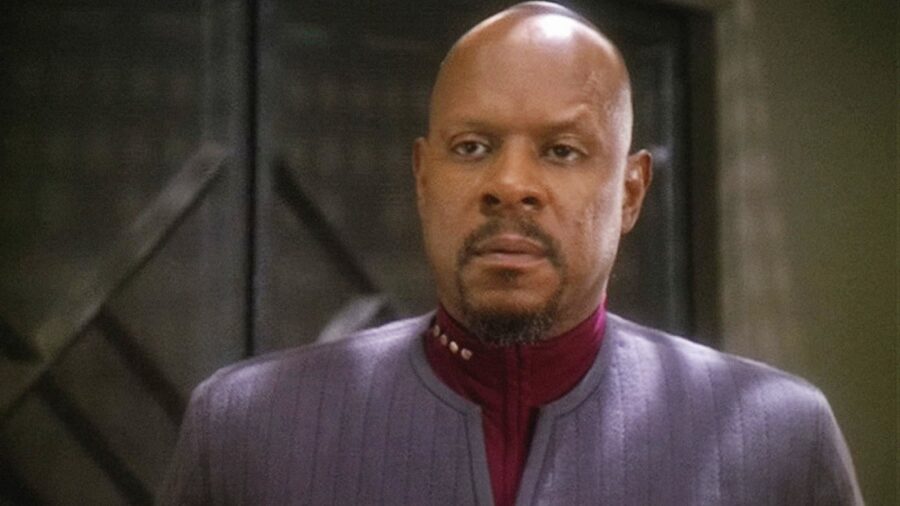The Single Line Of Star Trek Dialogue That Defied Gene Roddenberry

One of the most shocking facts Star Trek fans ever discover about Gene Roddenberry is that he earnestly believed the onscreen characters of shows like The Next Generation were too advanced to have conflicts with one another. The franchise began moving away from this idea even before Roddenberry died, but it can be difficult to pinpoint the moment that it happened.
Now, however, we have an idea: one veteran Star Trek director praised the second episode of Deep Space Nine for a single line of dialogue that proved how humanity would never be completely free of conflict.
For this crazy Star Trek tale to make sense, we need to turn the clock back to Gene Roddenberry’s early rule for writers of The Next Generation. In short, he didn’t want any of the crew to have any personal conflicts with one another, believing that 24th-century Starfleet officers, as the best of both humanity and Starfleet, would have evolved past that.
Star Trek moved past Gene Roddenberry’s rule for many reasons, including the franchise creator’s failing health keeping him from micromanaging the show like he once did.
However, as any screenwriter will tell you, the greatest scripts are built around conflict between characters; resolving that conflict is how our characters grow.
Eventually, Star Trek moved past Gene Roddenberry’s rule for many reasons, including the franchise creator’s failing health keeping him from micromanaging the show like he once did.

On a related note, one of the reasons given for creating the spinoff Deep Space Nine was to create a Trek show very different from what we had before, right down to the character conflicts. According to the director of the second episode, “Past Prologue,” one line of dialogue perfectly encapsulates the inevitability of such conflict.
The line is simple enough: after Kira does a kind of end-run around Sisko’s authority, the station commander gives his Bajoran first officer a simple warning. “Go over my head again and I’ll have yours on a platter.” For most audiences, this line symbolized the evolving and sometimes tumultuous relationship between Sisko and his new crew, but episode director Winrich Kolbe had a more philosophical interpretation of this line.

While the Star Trek director didn’t explicitly mention Gene Roddenberry, it’s clear that the two men don’t see eye to eye about a fundamental aspect of franchise storytelling. According to Kolbe, “we are changing, but we are not necessarily becoming more advanced.” Unlike the franchise creator, the director believes that “nationalism” and “racism” are factors that “will always be there, because it’s something genetically inside us.”
…hard to argue that Star Trek hasn’t gotten better stories since it ditched Gene Roddenberry’s rule about having no interpersonal conflict between characters.
Such comments might paint Kolbe as a cynic compared to Star Trek creator Gene Roddenberry. That’s probably fair: according to Kolbe, “we only seemingly live in a better social society if we can combat it, but the moment we let our guard down, bingo, there’s the conflict.”
In other words, he doesn’t see Roddenberry’s idealized utopia as one where anyone has truly evolved beyond conflict…at most, that society is an illusion where others pretend to keep the conflict at bay, but it’s always bubbling under the surface and ready to emerge.
While the Star Trek director didn’t explicitly mention Gene Roddenberry, it’s clear that the two men don’t see eye to eye about a fundamental aspect of franchise storytelling.
While we don’t like to pick sides here, it’s hard to argue with Kolbe’s interpretation of human nature, and it’s equally hard to argue that Star Trek hasn’t gotten better stories since it ditched Gene Roddenberry’s rule about having no interpersonal conflict between characters.
As fans, it’s far more fascinating to think that we might have located a single line of early DS9 dialogue that most clearly defied Roddenberry’s storytelling ethos. Deep Space Nine was always meant to go its own way compared to TNG, and lines of dialogue like this are a reminder that it was doing so from the very beginning.











